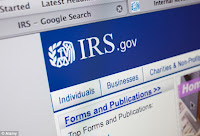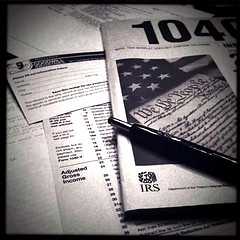 If you've been swapping emails with your accountant about the best way to avoid paying taxes, be aware: The IRS says it has the right to go into your account and read them.
If you've been swapping emails with your accountant about the best way to avoid paying taxes, be aware: The IRS says it has the right to go into your account and read them.
A report from the American Civil Liberties Union, which filed a Freedom of Information Act request to find out whether the IRS is reading your emails without a warrant.
A bit of background is necessary here. When it comes to getting a warrant to read your email, the relevant law is the Electronic Communications Privacy Act, which was enacted way back in 1986. As you might expect, the law is a bit dated: According to the law, a government agency can read your email without a warrant as long as the email has been opened, or if it's been sitting in your inbox for more than 180 days. Only unopened email that's been on the server for less than 180 days requires a warrant.
aware: The IRS says it has the right to go into your account and read them.
It's exactly the kind of arbitrary distinction you might expect from a law written before email was widely used and understood. And accordingly, a Sixth Circuit appeals court ruled in 2010 that in fact, agencies needed to get a warrant before reading any emails, not just those that were new and unopened.
Before that decision, the IRS was certainly opening emails without warrants -- in fact, the ACLU got hold of an internal handbook claiming that the "the Fourth Amendment does not protect communications held in electronic storage."
The question, then, is whether those practices changed after the Sixth Circuit decision.
The ACLU is calling on the IRS to amend its procedures to bring them in line with the Fourth Amendment. In the meantime, just be aware that the taxman might sift through your inbox if he thinks you're holding something back.
Read more at: Tax Times blog







